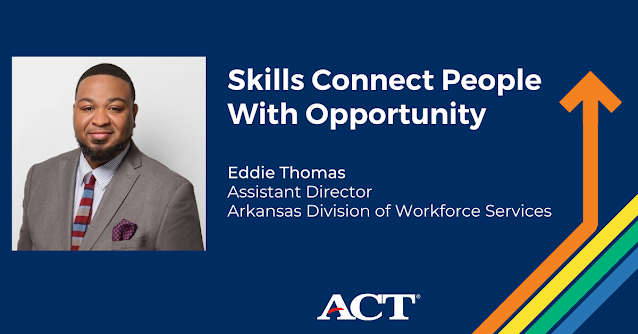By: Joann Moore, senior research scientist, and Joyce Schnieders, research scientist ACT is committed to helping all students achieve education and workplace success, including the more than 7 million students in the U.S. who have disabilities. For these students, ACT provides testing accommodations, which are changes to test administration conditions that allow students to more accurately demonstrate their knowledge and skills. ACT continuously evaluates the accommodations that we offer, as well as the processes by which students request and are approved for accommodations. We also monitor the validity and efficacy of the accommodations and the scores that result from test administrations that include accommodations. ACT strives to provide a fair and equitable assessment experience to every student.
To this end, we recently published a
repository of ACT research investigating the performance and experiences of students testing with accommodations, including two new studies. ACT will add to this repository as our researchers continue to examine this important topic, as well as others affecting students with disabilities.
One of the most important findings of our
new research mentioned above is that students with disabilities want to go to college at similar rates as their peers, with 46% wanting to earn a bachelor’s degree, 16% wanting to attend one to two years of graduate study, and 14% wanting to earn a doctorate or professional degree.
However, we are seeing some potential opportunity barriers for these students. Students who tested with accommodations were less likely to take core academic coursework in math and science and tended to have lower ACT scores and lower high school GPAs than students testing without accommodations.
Previous research has shown that taking a core academic curriculum of four years of English and three years each of math, social studies, and science is related to both higher ACT scores and higher GPAs.
We also found that ACT scores and high school GPAs vary widely by disability type. For example, students with intellectual disorders or learning disabilities tended to have lower ACT scores and GPAs, while students with anxiety or depression tended to have higher ACT scores and GPAs.
Another
recent study looked at score gains for students taking the ACT twice, either with or without accommodations on one or both tests. We found that students who first tested without accommodations and then retested with accommodations had lower scores on their first test, but higher score gains than their peers, which we would expect to see if the accommodations are helping them more accurately demonstrate their knowledge and skills.
However, we also found that a substantial number of students initially tested with accommodations but retested without accommodations. This raises a concern that students may be encountering difficulties in obtaining accommodations, and additional research is needed to find out whether students chose to retest without accommodations or if they faced barriers at some point during the request process.
In 2021, ACT
updated its accommodations policy to streamline eligibility requirements and make it easier for students, families, and educators to provide the documentation they need to receive accommodations. We have been tracking the effects of this policy change and have seen:
- An increase in examinees testing with accommodations, from 4% to 6%.
- An increase in the automatic approval rate, from 45% to 90%.
- A decrease in non-approved or partially approved requests.
- Faster approvals, fewer customer calls, and positive customer feedback.
- Less time spent by our accommodations team members on approving accommodations, so they can focus on other initiatives to better serve students.
Students say the work that ACT is doing to remove barriers and make testing more accessible is making a real difference in their lives. Last year,
Ky’Ren Johnson, then a junior at Louisiana’s Bastrop High School, became the first student to take the ACT using an accommodation called JAWS, a text-to-speech software. ACT is continuing to explore how we can use technology to improve test accessibility for students with disabilities.
These developments underscore ACT’s commitment to eliminating barriers and ensuring that all students have access to the resources and supports they need to be successful in education and in life.




